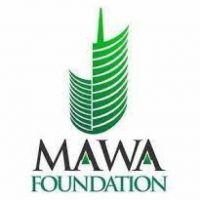Mr. Ameh Fredrick has narrated how resilience and determination made him and his co-workers survive the COVID-19 pandemic crisis and stayed in business and operation.
Ameh who has over seven boys in his workshop at the Uke area of Nasarawa state while speaking to the MAWA Foundation team explained how the COVID pandemic has adversely affected their business while disclosing that some of his colleagues who are in the same line of business had since left for other cities and villages because they could not survive the pandemic crisis.
He added that as soon as the lockdown began and things became difficult, they quickly adjusted their lifestyle which is mainly the way monies are been spent and food is consumed.
He, however, told MAWA officials that a major decision he took when he realized that he is losing income during the lockdown was to ensure his family members do not go hungry and none of his staff sacked no matter how bad it may become.
This is even as Ameh said he contributed monies with his brother and started the business together.
Explaining how they were hit by the COVID-19, Ameh said as soon as the pandemic outbreak began, he lost many of his customers; mainly because the pandemic forced them to concentrate on feeding their family while fixing their cars became a secondary option and others dumped theirs completely.

He has since appealed to the government to assist small businesses that are dying as a result of the pandemic.
“This COVID-19 really destroyed businesses and rendered many poor, if the government does not assist, there will be loss of employment because many who lost their business cannot bounce back without assistance”, he told the MAWA team.
He also described the N30k given by the government to COVID-19 survivors as a drop in the ocean that cannot do anything, pointing out that many of the businesses that collapsed need a huge capital to be revitalized and not stipends that government gives.
This report is supported by the Open Society Initiative for West Africa (OSIWA)
